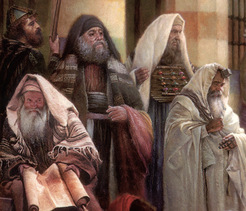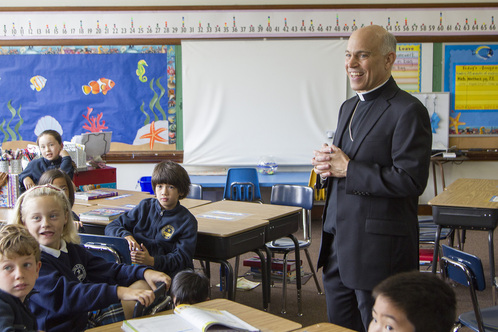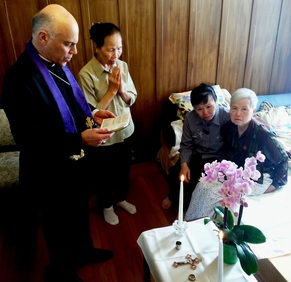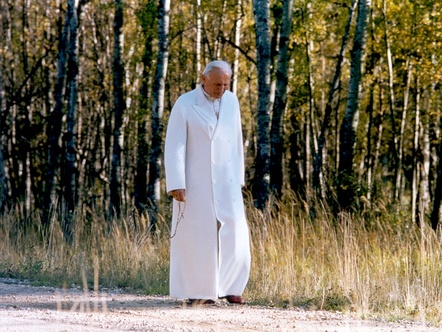
St. Paul kneels before the Father, from whom every family in heaven and on earth takes its name. God defines the family because he created us. We did not create ourselves. The secularism in which the United States is awash rejects this fundamental truth; namely, that I am not God. It is by His authority that I even exist, and by His authority that the human family exists. Paul “kneels before the Father,” he bows to that authority, so that he might know the breadth and length, the height and depth, of the love of Christ, which surpasses all knowledge. Catholic schools and universities, in a better time, valued love more than knowledge; in a better time Catholic priests taught their parishioners and Catholic parents taught their children, that God created us for one purpose: to know Him, to love Him, and to serve Him in this world, so as be eternally happy with him in the next.
But our faith has diminished as we have become wealthier and more educated. Oh that we could be wealthy, educated, and faithful to God! Why is it that economic prosperity almost always leads to loss of faith? As western culture loses its faith in God, the family, in particular, becomes incomprehensible. If we do not “kneel before the Father” with St. Paul, we will not be capable of “comprehending” the breadth and length of Christ’s love. We will become progressively stupid and loveless, that is, less civilized. For all the rhetoric about going green and being natural, our relations with each other have become unnatural, because we have rejected the laws of nature and nature’s God (as the Declaration of Independence states in the first paragraph).
Charity
San Francisco was once a city of strong Christian families. Its hundreds of churches bear witness to a more faithful era. How can we speak truth to a culture gone secular? I tell you, we can only do so with heartfelt charity. No one will listen to a Christian who does not speak with charity. In his letter to Nancy Pelosi and others who attacked him for defending marriage, Archbiship Cordileone wrote these words last June: “Please do not make judgments based on stereotypes, media images and comments taken out of context. Rather, get to know us first as fellow human beings. I myself am willing to meet personally with any of you not only to dialogue, but simply so that we can get to know each other. It is the personal encounter that … softens the heart. In the end, love is the answer, and this can happen even between people with such deep disagreements. That may sound fanciful and far-fetched, but it … is possible. … I know this from personal experience.”
Legalism v. Charity
In the Gospel Jesus is attacked, like our good Archbishop, for an act of charity. At a Sabbath dinner party he sits opposite a man suffering from dropsy. “May I heal this man, even though it is the Sabbath?” he asks the Pharisees. They remain obtusely silent because they are legalists: they love the law more than the man. Jesus heals the man and then asks the sullen Pharisees if any one of them would rescue his own son or even his work animal ox on a Sabbath. They cannot answer him without surrendering their proud self-sufficiency. They would have to say, with St. Paul, that the law cannot save us. Only God can save us, and it is He who makes the laws. His supreme law of charity trumps all other laws, and this is something all of us find hard to live with.
Those of us who love the Latin Mass are particularly prone to legalism. The many rubrical laws of the Mass, however, are at the service of charity. If we follow every liturgical law of the Mass but are not moved to greater charity, meaning patience, heartfelt affection, and thoughtfulness to our brothers, the law is pointless. It becomes an obstacle to God, as it did in today’s Gospel.
The good news is that we can keep the disciplinary laws of the Church and the supreme law of charity. God does not command mutually exclusive laws. We can be faithful to the high standards of Christian morality without violating the highest law of charity. It’s all about how we say things: either with the loving heart of a mother or father, or the harsh demands of a Pharisee. We must turn, above all, to Our Lady for inspiration and intercession in achieving this delicate balance. She was supremely delicate among all women. She knew the right words, and will teach us how to speak, even to our enemies.







 RSS Feed
RSS Feed